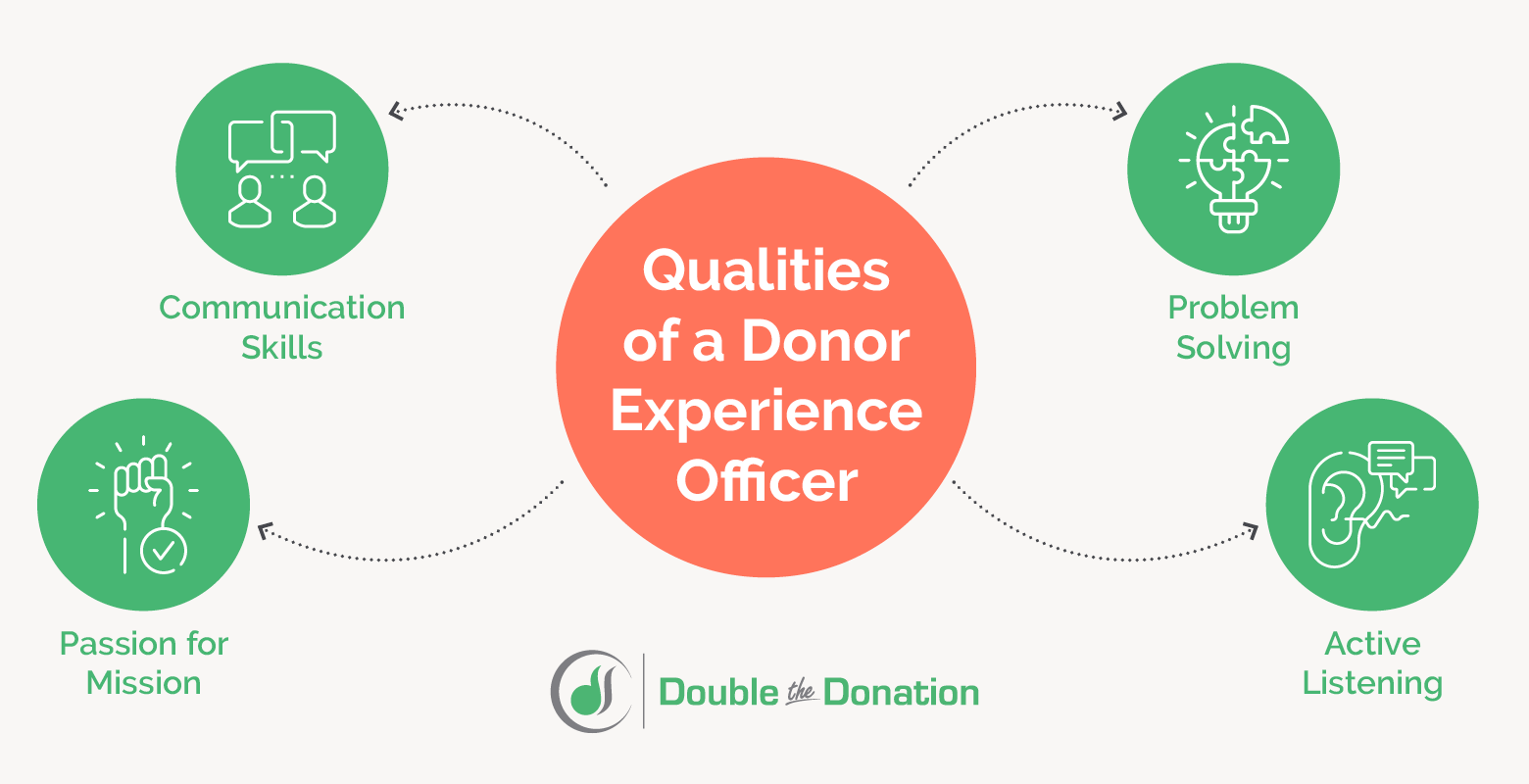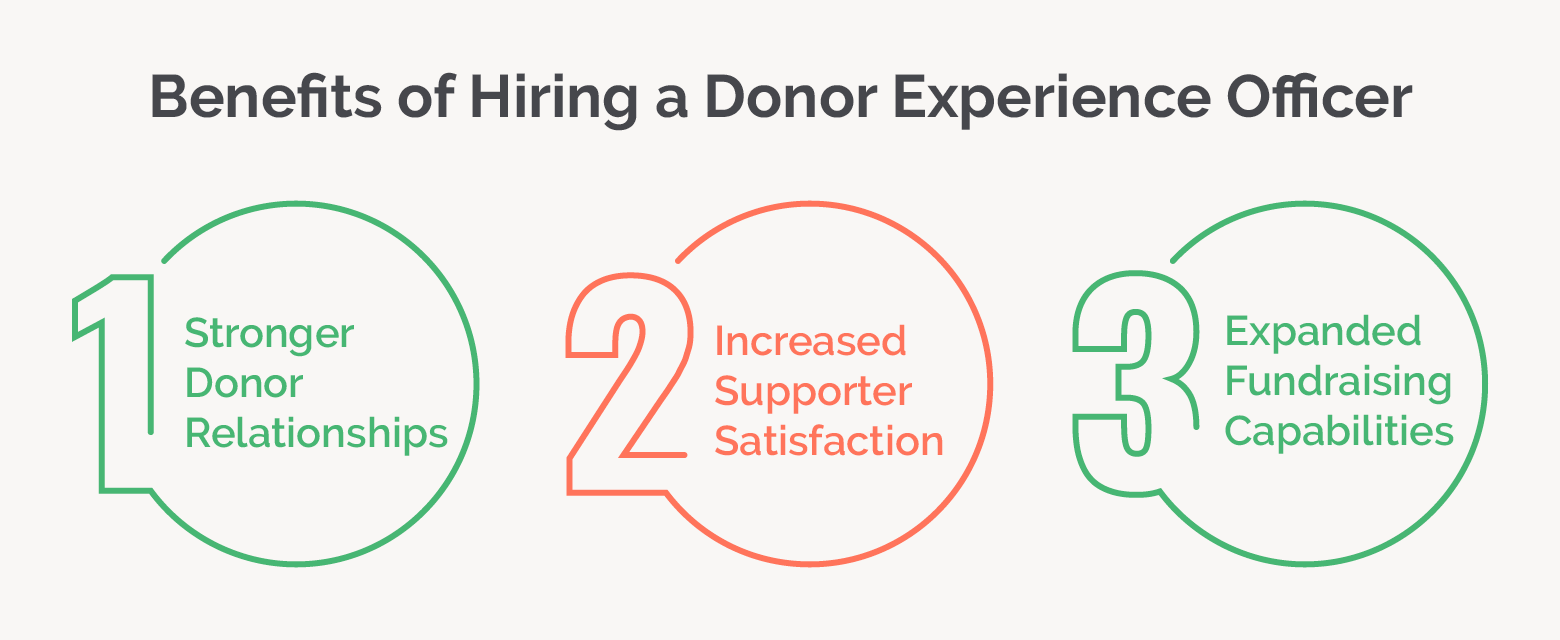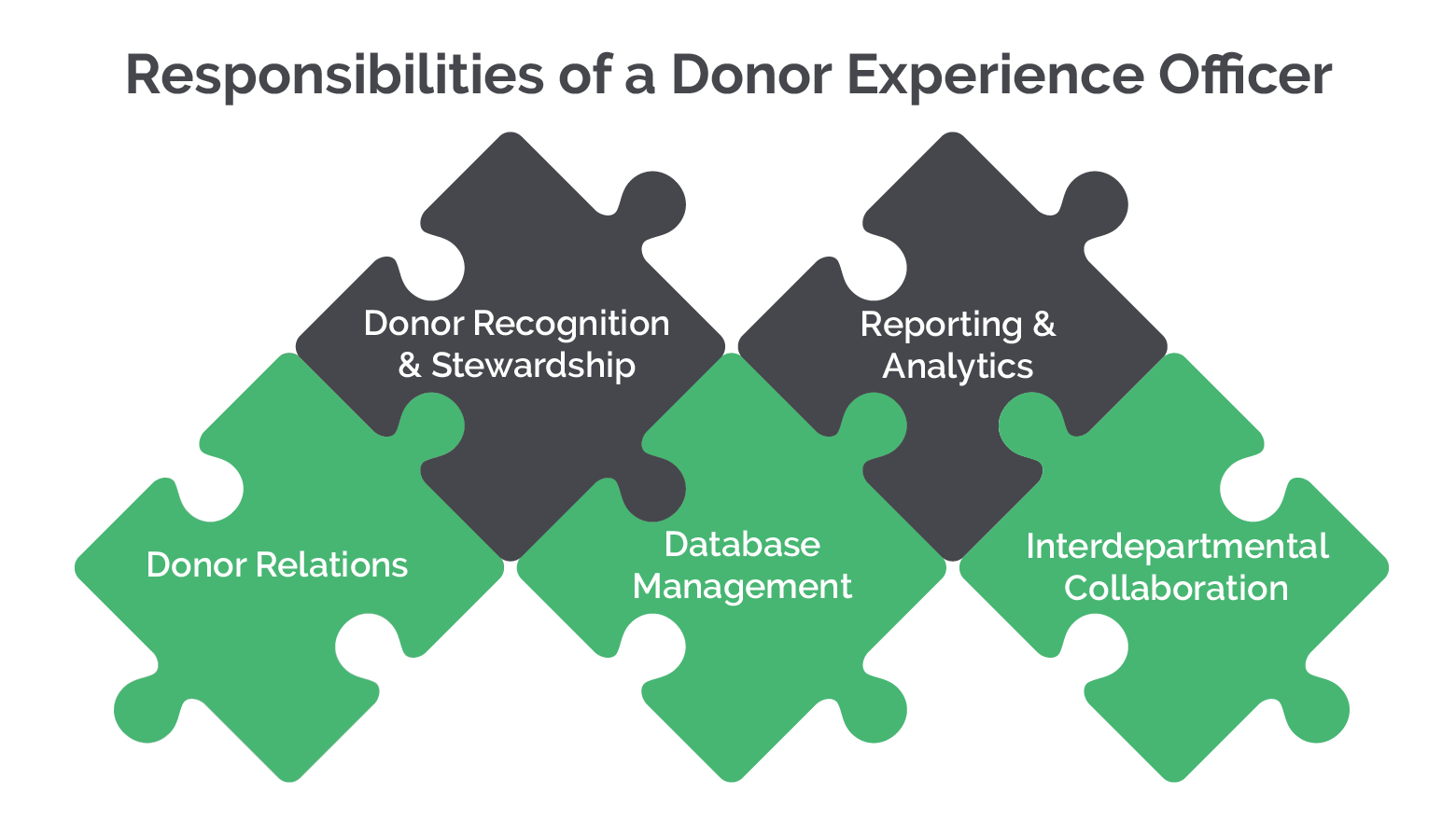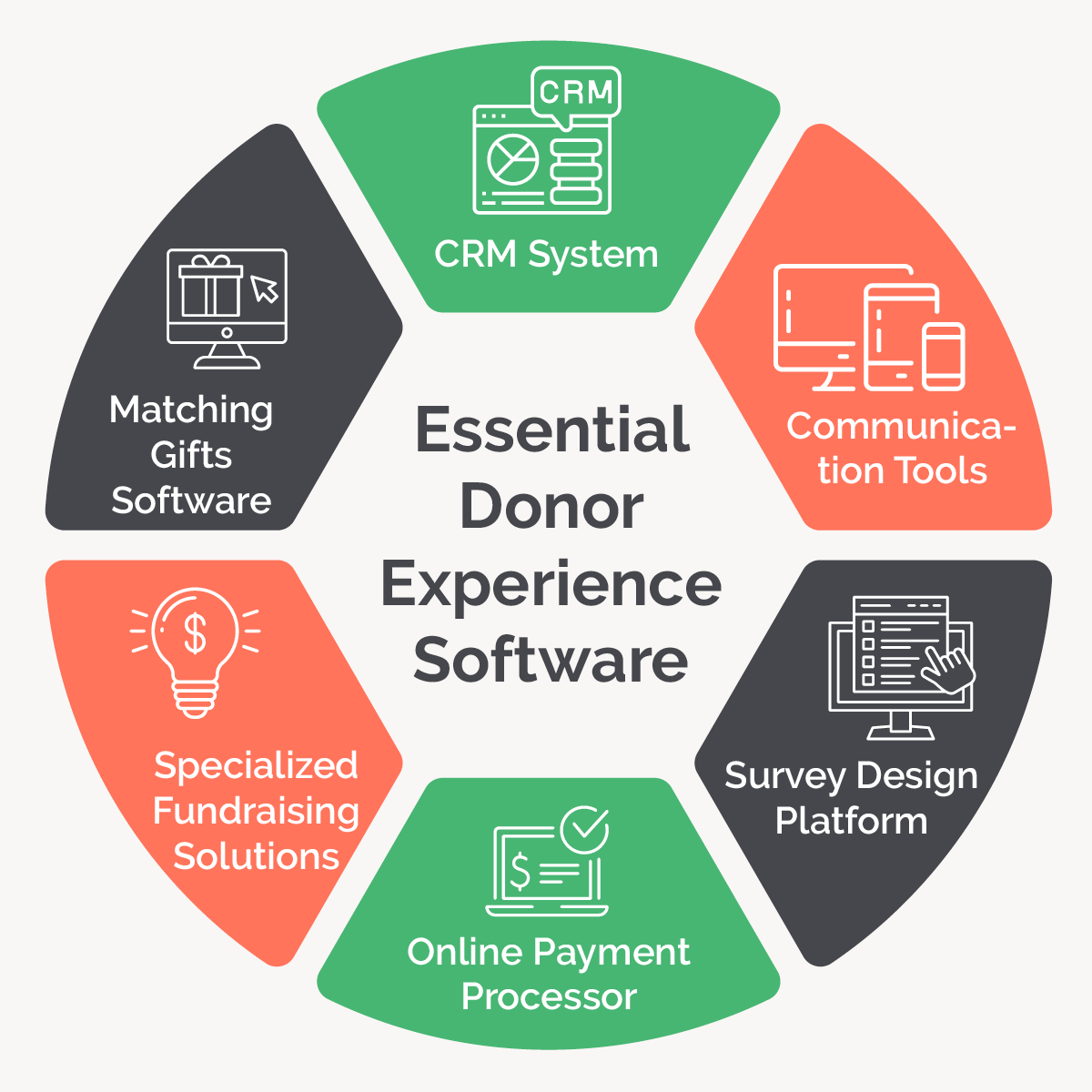What Is a Donor Experience Officer? The Ultimate Guide
If you’re a nonprofit professional, you know how important it is to retain your donors from year to year. While you’ll sometimes need to acquire new donors for growth, donor retention is more cost-effective and builds a reliable support base for your mission.
However, in the nonprofit sector, the average donor retention rate is less than 35%. To break the mold, your organization needs to provide such a good donor experience that supporters will be happy to come back year after year. One of the best ways to accomplish this is by creating a dedicated donor experience officer position at your nonprofit.
In this guide, you’ll learn all you need to know about donor experience officers, including:
- What is a donor experience officer?
- Benefits of Hiring a Donor Experience Officer
- Responsibilities of a Donor Experience Officer
- Essential Tools for Donor Experience Officers
Whether you’re considering bringing on a brand-new staff member or moving an existing employee into this position, a donor experience officer can take your engagement and retention efforts to the next level. Let’s get started by defining exactly what this role entails.
What is a donor experience officer?
A donor experience officer is a nonprofit professional whose job is to ensure supporters have a positive, meaningful experience when contributing to your organization. Their role combines donor relations with aspects of fundraising and marketing.
The most important qualities of a good donor experience officer include:
- A passion for the organization’s mission. This is a key characteristic of many nonprofit professionals, including donor experience officers, and it should be evident in all of their interactions with supporters.
- Strong communication skills. Donor experience officers need to be adept at both writing and holding conversations so they can effectively reach every supporter through their preferred communication channel.
- Strategic thinking and problem-solving abilities. Your donor experience officer is also essentially a customer service provider for your nonprofit, meaning they’ll need to address a range of issues supporters might have as they engage in your mission.
- Being an active listener. Donors bring a variety of motivations, concerns, and suggestions when they contribute to your nonprofit. Your donor experience officer should ensure they feel heard, understood, and valued.
Donor experience officers often serve as leaders at their organizations, so they should also have prior experience with nonprofit fundraising and/or communications that they can bring to the role.
Benefits of Hiring a Donor Experience Officer
Of all the nonprofits out there, the ones that are most likely to consider hiring a donor experience officer would be mid-sized organizations planning for growth in the near future. Large nonprofits often have whole teams dedicated to donor engagement, while small organizations may not yet have the budget to hire this type of professional or complex enough needs to warrant one.
If your organization is in the right place to think about hiring its first donor experience officer, here are the main advantages to doing so:
Stronger Donor Relationships
When donors have a good experience giving to your organization, they’re more likely to deepen their support over time. Their memories of your nonprofit will be favorable thanks to your donor experience officer’s engagement strategies and stewardship efforts.
Plus, your donor experience officer can get to know donors on an individual level and then make tailored recommendations to help them get more involved. For instance, if a recurring donor mentions to the officer that they enjoy running, your nonprofit could send that donor a personalized invitation to your upcoming 5K fundraising event so they can engage in a new way that matches their interests.
Increased Supporter Satisfaction
Some donors will remember their experience giving to your organization positively because everything went smoothly thanks to your donor experience officer’s efforts. However, if an issue comes up in the process, the supporter might still leave with a good impression of your organization if it’s resolved effectively.
Let’s say a supporter alerted your donor experience officer that your online donation form wasn’t loading properly. The officer quickly elevated the concern to your nonprofit’s technology specialist to fix the issue and emailed the supporter individually to notify them that the form was working again and apologize for the inconvenience. Despite the issue, the donor may still remember their experience positively because the officer took such care to solve the problem.
Expanded Fundraising Capabilities
With their nonprofit background and strong understanding of your donor base, your donor experience officer can work closely with your organization’s fundraising team to:
- Brainstorm new giving opportunities that would appeal to your donors.
- Figure out the root causes of issues with existing fundraisers and recommend solutions.
- Gather supporter feedback to incorporate into your fundraising strategy.
For example, let’s say your fundraising team decided to add corporate matching gifts to your nonprofit’s revenue generation model, and your donor experience officer backed this idea because they knew of many donors who worked for companies with matching gift programs. However, your organization found that donation matching rates were still low after the revenue stream had been in place for six months.
To investigate the problem, the donor experience officer could send out a supporter feedback survey on matching gifts. If multiple respondents expressed that they didn’t know about the opportunity, the officer might suggest marketing matching gifts more strategically to spread awareness and boost your organization’s revenue totals.
Responsibilities of a Donor Experience Officer
Your donor experience officer’s day-to-day tasks will depend on your nonprofit’s priorities. These professionals might work on a wide variety of donor communication and fundraising tasks at some organizations, while at others, they’re much more dedicated to specific projects like building a monthly giving program or stewarding mid-level donors.
However, there are five categories of duties that donor experience officers are most commonly responsible for at nonprofits, which we’ll discuss in more detail in the following sections.
Donor Relations
The term “donor relations” refers to all of the efforts your nonprofit makes to cultivate relationships with supporters. Because the kind of donor experience your organization provides is a key factor in your ability to form lasting connections, your donor experience officer will be at the forefront of donor relations. For instance, they might:
- Get to know individual donors through one-on-one meetings or by chatting with them at events.
- Strategically choose and share tailored engagement opportunities with different donor segments.
- Assist your major gifts team with identifying and reaching out to donor prospects.
- Respond to questions and concerns raised through the contact form on your nonprofit’s website, feedback surveys, or a generic email address.
For many supporters, your donor experience officer will become the face of your organization, which is why it’s so critical for them to be passionate about your mission and demonstrate good customer service skills.
Donor Recognition & Stewardship
Sometimes grouped with donor relations, donor stewardship is specifically concerned with encouraging continued support by expressing gratitude for contributions to your nonprofit. To do this, your donor experience officer may employ a variety of recognition strategies, such as:
- Sending donation thank-you letters, emails, or eCards.
- Picking out gifts for more dedicated individuals like recurring donors or mid-level supporters who might upgrade.
- Choosing loyal donors to feature in marketing materials like testimonial videos or social media posts.
- Compiling the customary list of contributors for your nonprofit’s annual report.
- Creating a donor wall, sign, or plaques to commemorate major donors.
Appreciation is a vital part of the donor experience because it shows supporters that your organization sees them as individuals, not just sources of revenue. When donors feel valued in this way, they’re more likely to remain invested in your nonprofit’s success.
Database Management
Your nonprofit likely collects a lot of data on its donors and stores it using a database or constituent relationship management (CRM) solution. However, this data is only useful for donor cultivation if it’s properly managed. To accomplish this, your donor experience officer should:
- Develop a system to organize information within the database.
- Update donor profiles with accurate contact details and engagement history.
- Stick to a regular schedule for database cleaning and maintenance.
While some of these activities will require assistance from technical specialists (either on your team, from the software company, or through third-party providers like data append services), your donor experience officer should know their way around your database well enough to maintain it day to day.
Reporting & Analytics
From the information in your nonprofit’s database, your donor experience officer should be able to configure and analyze reports to draw actionable insights from them. For example, these reports might cover:
- Demographic and engagement data on individual donors that identifies them as a potential major donor or a likely participant in your monthly giving program.
- Results of specific fundraising campaigns or events so you can see what went well and where you could improve.
- Holistic annual metrics for your organization, such as your donor acquisition rate, donor retention rate, and cost per dollar raised.
Not only do these reports help your donor experience officer in their supporter engagement work, but they can also inform other team members’ decision-making in their roles.
Interdepartmental Collaboration
To effectively complete all of the activities outlined above, your donor experience officer will likely work closely with the following staff members at your organization:
- The fundraising team to plan and fine-tune campaigns, events, and stewardship activities.
- Marketing and graphic design professionals to create high-quality donor communication materials.
- Information technology specialists to resolve technical issues within the donor journey and manage your organization’s donor database.
- Your nonprofit’s leadership to ensure their donor engagement efforts are in line with the organization’s strategic plan.
Although it’s useful to have one person take the lead on creating a positive donor experience at your organization, it takes a whole team to fully engage nonprofit supporters. Working collaboratively is essential to make the most of having a donor experience officer on your team.
Essential Tools for Donor Experience Officers
In addition to hiring a donor experience officer with the right qualities and providing support through collaboration, your organization should set this individual up for success with the right tools. Here are a few software platforms you should have in your tech stack:
- A robust CRM with comprehensive donor profiles and integration capabilities to allow for seamless data transfer.
- Automated communication tools to make sending emails and text messages to donors a breeze.
- A survey design platform for easy feedback-gathering and analysis.
- An online donation form with a secure payment processor so supporters can trust your donor experience officer with their data.
- Specialized fundraising solutions so the officer can help plan and troubleshoot various giving opportunities like crowdfunding, peer-to-peer campaigns, and events.
- Matching gifts software to help them boost revenue and improve the donor journey through employer donation matching.
To help your officer provide an even better donor experience, look for a matching gifts platform with auto-submission capabilities. This way, instead of having to fill out a separate form to get their employer to match their donation, donors can just enter their work email address to automatically submit the request. Check out the video below to learn more about auto-submission:
Wrapping Up: Additional Donor Experience Resources
Donor experience officers can improve a wide range of supporter-related processes at your organization, from outreach to stewardship to data analysis. With a dedicated individual working to make your donors’ experience as positive and fulfilling as possible, you’ll be well on your way to seeing more and more donors come back every year.
For more information on improving the donor experience at your nonprofit, check out these resources:
- Donor Recognition: When & How to Acknowledge Supporters. Explore our top strategies and methods for effectively recognizing your supporters’ contributions at all levels.
- How to Start a Donor Retention Program for Your Nonprofit. Discover how your nonprofit can benefit from having a dedicated donor retention program and the process for launching one.
- Nonprofit Basics: Nonprofit Jobs. In addition to a donor experience officer, there are many other roles to fill at your nonprofit—learn more about these essential positions.








